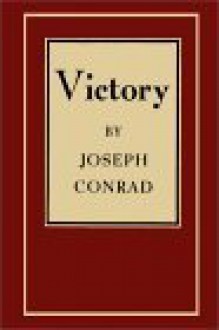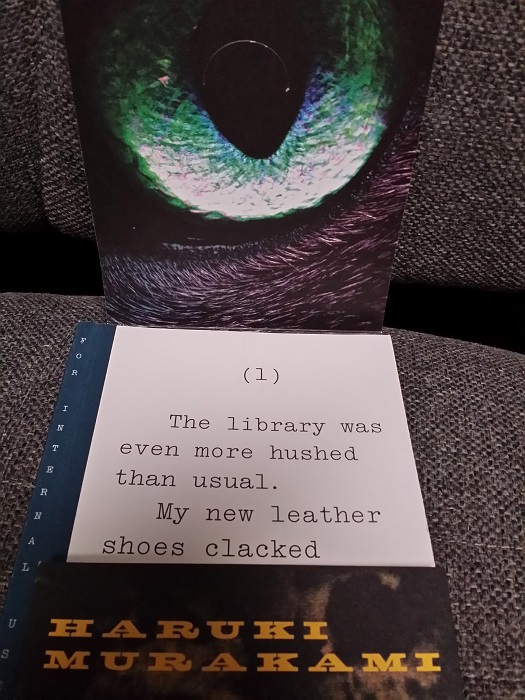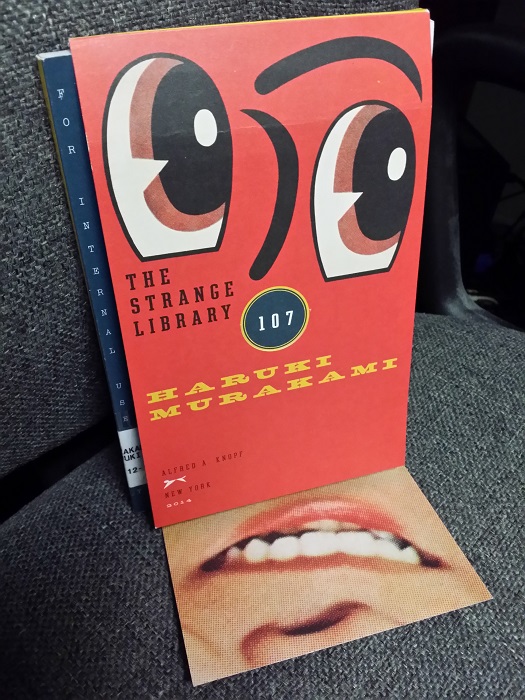“Sansho the Steward” by Mori Ogai
This is a poignant short story about a brother and sister who are kidnapped and sold into slavery. There’s no way there could be a happy end for both of them.
The Golden Slipper, and other problems for Violet Strange by Anna Katherine Green
A fun detective novel! The detective is a beautiful, rich, popular heiress. So why is she solving crimes simply to make money? Her special ability is to understand people’s characters. There was a single thread or plot about Miss Strange running through it, but it was also a series of basically stand-alone mysteries. The cases started out being the kind of crimes a society girl might potentially encounter, like a missing necklace, but became increasingly more atmospheric and gothic, involving hidden chambers and tunnels and caves and spooky old houses with dozens of clocks and a blind doctor who is a top gun shooting ace.
The Good Soldier by Ford Maddox Ford
I read this when I was a teenager and I don’t remember it well, just that it was about a group of friends who are having marital problems. I remember that the real story was revealed somewhat slowly, and that I liked it. I looked it up just now on Wikipedia to make sure I was even thinking of the right book, and I learned that Ford originally wanted to call it “The Saddest Story.” His publishers asked for a new title (very properly, in my view—I don’t want to read a book called “The Saddest Story”) and as a joke he came up with “The Good Soldier” in view of the war. I can only ever think of a joke title for my books too, so I really identify with this.
The Lost Prince by Frances Hodgson Burnett
A poor little boy lives in London with his beloved father, who is working to return to the rightful king of his homeland to the throne. You may have figured it out from the title, but in the final pages of the book the boy is astonished to discover that his own father was the missing heir to the throne. I liked that there was a plucky character with a disability who neither died nor was cured; actually, that character reminded me a bit of Becky from A Little Princess. Not Burnett’s very best book, but I enjoyed reading it.
Dear Enemy by Jean Webster
This is the lesser-known sequel to Daddy Long Legs. In this epistolary novel, Judy, a rich socialite with lively and original ideas takes over the orphanage that the Daddy Long Legs heroine grew up in. I was charmed to learn that the orphanage is in Dutchess County, where I live. The orphanage is cheerless and unhealthy when Judy arrives, but she manages to transform it into a place where the children can have nice clothes, affection, a gentle education, up-to-date (for the period) medical treatment, and the chance to play outdoors. It’s understood that Judy will just run the orphanage for a little while, and then marry her rich boyfriend and stop working forevermore, but later Judy is not so sure. Judy comes into conflict with the orphanage’s crabby Scottish doctor, the “Enemy” of the title. However after a while their animosity turns to friendship and then to...? But the doctor is guarding a sorrowful secret.
This part of the book mirrors Jean Webster’s real life. I don’t know much about her, but I did read her Wikipedia page from top to bottom. In addition to being a supporter of women’s suffrage and various reform movements and education for women, she had a boyfriend who couldn’t divorce his wife because she was mentally ill. (I hear this story over and over, and yet I never hear about the undivorcable mentally ill husband.) Webster’s boyfriend also had a “mentally unstable” child. And it sounds like the boyfriend was not the picture of mental health himself.
Anyway, the least appealing part of Dear Enemy is the lip service granted to the eugenics models of Galton and Goddard, with discussion of the feebleminded Jukes and Kallikaks. Judy eventually concludes that there’s nothing in this heredity business, but because it was the “scientific” idea of the age, Webster gave eugenics quite a bit of air time. It does seem that the whole question of inherited mental illness was one that she had a real personal interest in, and I think she was honestly trying to figure it out rather than just being sensationalistic.
This is one of the books of 1915 that’s still read today, as a fluffy fun book for young people, not as a towering literary classic assigned in school. I think the reason for its endurance is that the main character is spunky and is more like a contemporary woman in terms of her attitude toward education, career, and love.
Victory by Joseph Conrad
An Englishman whose business concern in Asia (I think Indonesia?) has failed ends up living “all alone” on an island. (Actually, he has a servant and in addition the native inhabitants of the island live there, but he is quite isolated.) But when he rescues a musician who is being abused by her boss and brings her back to the island to live with him, the boss hires thugs to exact a horrible revenge. This novel was suspenseful and weird. I think Conrad managed to say something racist about every ethnic group on earth, but it wasn’t as bad as I was expecting. Spoiler:
EVERYONE dies at the end.
(spoiler show)
I never read any Conrad before except for “The Secret Sharer” which I quite liked and the first few pages of Lord Jim. But the way everyone talks about him, I was expecting something very dreary and “important.” Instead it was the sort of shlocky melodrama that I enjoy. So I will definitely read his next offering.
The Thirty-Nine Steps by John Buchan
I always liked the Hitchcock film, and the book it is based on is fairly similar. It’s a thriller about a man who has to clear his own name by catching the real killer, and in the process he unmasks a ring of spies, with a lot of picturesque running through the Scottish highlands. There’s an extended soliloquy by one of the characters about Jews who control finance and the world (“The Jew is everywhere, but you have to go far down the back stairs to find him... to get to the real boss, ten to one you are brought up against a little white-faced Jew in a bath-chair with an eye like a rattlesnake.”) I’m not sure if the reader is supposed to take that seriously or think it’s ridiculous, but it was rather creepy.
 I'm a huge fan of Haruki Murakami, and have read all but one or two of his books. This one didn't much do it for me, but I think the problem was more with me than with Murakami. At the moment, I'm finding myself in a place where I could use more fluff and less about screwed up young men. I'm especially in a place where the sexual fantasies and hang-ups of young men aren't of much interest to me. I admit to being an elderly, repressed Calvinist, and I wasn't able to set that part of me aside while I was reading these seven stories. I'd read several of these stories previously, probably in The New Yorker, or some such place. I think I liked them better then, but then the reading was a one-off thing, not a whole series. So, I'm suggesting one reads this collection a story at a time, with much other stuff in between revisits to this collection. At least that's what I'd have done, were I not under the gun, so to speak, to get the book read before its library due date.
I'm a huge fan of Haruki Murakami, and have read all but one or two of his books. This one didn't much do it for me, but I think the problem was more with me than with Murakami. At the moment, I'm finding myself in a place where I could use more fluff and less about screwed up young men. I'm especially in a place where the sexual fantasies and hang-ups of young men aren't of much interest to me. I admit to being an elderly, repressed Calvinist, and I wasn't able to set that part of me aside while I was reading these seven stories. I'd read several of these stories previously, probably in The New Yorker, or some such place. I think I liked them better then, but then the reading was a one-off thing, not a whole series. So, I'm suggesting one reads this collection a story at a time, with much other stuff in between revisits to this collection. At least that's what I'd have done, were I not under the gun, so to speak, to get the book read before its library due date. 
 Log in with Facebook
Log in with Facebook 





















